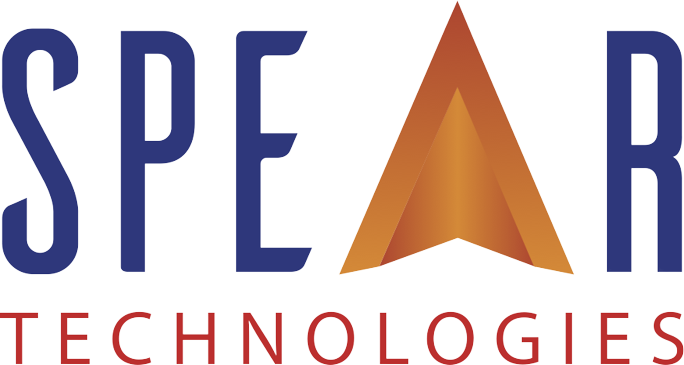Data Sovereignty in Insurance: Why Owning Your Data Matters

Taking Control in a Data-Driven Industry
In today’s digital insurance landscape, data is one of the most valuable assets for P&C insurers. It drives underwriting decisions, enhances claims processing, and fuels AI-powered analytics. Yet, many insurers unknowingly relinquish control over their own data due to vendor lock-in, restrictive software agreements, and cloud storage policies that limit accessibility.
Data sovereignty—the ability to retain full ownership, access, and control over your data—has never been more critical. With increasing regulatory scrutiny, rising cybersecurity threats, and the growing need for AI-driven insights, insurers must prioritize solutions that ensure their data remains in their hands.
What is Data Sovereignty?
Data sovereignty refers to the concept that an organization maintains full control over its data, ensuring it remains within a jurisdiction where it complies with industry regulations and security standards. For P&C insurers, this means having unrestricted access to claims records, policyholder data, and operational analytics without interference from software vendors or third-party cloud providers.
However, traditional core systems often limit data ownership by:
- Restricting direct access to raw data, making it difficult to extract insights.
- Locking data into proprietary formats, preventing integration with modern analytics tools.
- Placing data in vendor-controlled environments, raising concerns about long-term access and security.
By ensuring full data sovereignty, insurers can safeguard their business against these limitations.
Why Data Ownership Matters for P&C Insurers
1. Regulatory Compliance and Risk Mitigation
Data privacy regulations such as GDPR, CCPA, and NAIC Model Laws impose strict requirements on insurers regarding data storage, access, and security. If an insurer does not fully own its data or cannot guarantee where it is stored, it risks compliance violations and hefty fines.
- Own your data to ensure adherence to insurance-specific regulations.
- Maintain audit trails for claims, underwriting, and policyholder records.
- Avoid legal and financial risks by keeping control over sensitive information.
2. Enhanced Data Security and Cyber Resilience
Cyber threats are increasing, and insurers are prime targets due to the wealth of personal and financial data they handle. When data is stored in vendor-controlled environments, insurers are dependent on third-party security protocols, which may not align with their own risk management strategies.
- Keep data within your control to implement custom security measures.
- Reduce exposure to third-party breaches by limiting external data access.
- Ensure business continuity by protecting critical claims and policy data.
3. Unrestricted Data Access for AI and Analytics
AI-driven underwriting, fraud detection, and predictive analytics require real-time access to structured and unstructured data. However, insurers often struggle to extract and leverage insights from vendor-managed platforms due to restricted access or data silos.
- Enable AI-driven decision-making with full access to historical and real-time data.
- Eliminate vendor restrictions that limit analytics capabilities.
- Seamlessly integrate data with third-party insurtech solutions and business intelligence tools.
4. Eliminating Vendor Lock-In for Greater Business Agility
Vendor-controlled data environments make it difficult for insurers to switch providers, upgrade technology, or innovate with emerging solutions. True data sovereignty ensures insurers have the flexibility to evolve without disruption.
- Avoid costly migrations by maintaining independent access to your data.
- Enable interoperability with API-driven platforms and third-party tools.
- Retain control over your future, free from vendor-imposed limitations.
How Customer-Managed Solutions Empower Data Sovereignty
To ensure full control over their data, insurers must adopt Customer-Managed Solutions, which provide:
- Direct database access – No intermediaries or restrictions.
- Flexible data storage options – Choose where and how data is stored.
- Integration freedom – Seamlessly connect with AI, analytics, and insurtech platforms.
- Regulatory compliance – Ensure adherence to evolving data protection laws.
Future-Proof Your Insurance Business with Data Sovereignty
As the insurance industry continues to evolve, data sovereignty is not just a compliance requirement—it’s a competitive advantage. Insurers who own their data can make faster, smarter decisions, enhance cybersecurity, and eliminate vendor restrictions that slow down innovation.
Ready to take control of your data? Contact us today to learn how SpearSuite™ empowers insurers with full data ownership and operational agility. Built on the Microsoft Power Platform, Spear exemplifies the data sovereignty approach by allowing insurers to license their technology directly—ensuring complete data ownership, flexibility, and security while empowering P&C insurers with the ability to take control of their technology, reduce dependency on third-party vendors, and adapt their systems to meet their unique business needs.
Schedule a Demo to explore how SpearSuite™ can revolutionize your insurance operations.
To discover how Spear’s solutions can help insurers of all sizes, Request Pricing.
